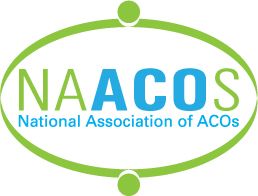
MSSP ACOs Saved $1.8M in 2022, Report Sixth Consecutive Year of Savings

The Medicare Shared Savings Program (MSSP) generated its second highest annual savings since the program began more than a decade ago.
For the sixth year in a row, the accountable care organizations (ACOs) in the Medicare Shared Savings Program (MSSP) have generated overall savings for Medicare while delivering high-quality performance results. Last year represented the second highest annual savings for the program since it began more than a decade ago.
MSSP began in 2012 after being permanently authorized under the Affordable Care Act. The program started with 2 participant track options with Track 3 being added in 2016 and Track 1+ being added in 2018.
“The Medicare Shared Savings Program helps millions of people with Medicare experience coordinated health care while also reducing costs for the Medicare program,” CMS Administrator Chiquita Brooks-LaSure,
At the beginning of 2023, MSSP ACOs included 573,000 participating clinicians providing care to nearly 11 million Medicare beneficiaries, according to CMS. Due to the success of the program, the agency has a goal of 100% of people with traditional, fee-for-service Medicare being part of an accountable care relationship by 2030.
According to Meena Seshamani, MD, PhD, CMS deputy administrator and director of the Center for Medicare, 2022 is one of the strongest years of performance to date.
“The Shared Savings Program is Medicare’s permanent, flagship Accountable Care Program, and we look forward to continually improving and growing the program, expanding the reach of participating ACOs, and addressing critical health disparities across the country,” she said.
Compared with other similarly sized clinician groups not in MSSP, ACOs had statistically significant higher performance for quality measures related to diabetes and blood pressure control, breast and colorectal cancer screening, tobacco screening and smoking cessation, and depression screening and follow-up.
Nearly two-thirds (63%) of participating ACOs earned payments for their performance in 2022, CMS reported. ACOs with low revenue, such as those mainly made up of physicians or serving rural areas, tended to earn more shared savings. These low-revenue ACOs had $228 per capita in net savings compared with $140 per capita for high-revenue ACOs.
“Every year, the body of data on how ACOs are improving our fragmented health system grows, and this year is no different,” Clif Gaus, ScD, president and CEO of the National Association of ACOs (NAACOS),
Other key data from the ACO results that NAACOS highlighted included that 78% of shared savings–only ACOs and 88% of at-risk ACOs produced gross savings.
NAACOS recently reached out to CMS to encourage the agency to add features of the ACO REACH model into MSSP. ACO REACH puts a strong emphasis on health equity and requires participating ACOs to develop a plan for how they identify health disparities in their community and specific actions to address them.
NAACOS has suggested that CMS adds a full-risk track, called Enhanced Plus, in MSSP to provide a better bridge to the ACO REACH model. The ACO REACH program allows for more innovation using waivers compared with the permanent MSSP program.
ACO REACH kicked off this year and will run through 2026.
Newsletter
Stay ahead of policy, cost, and value—subscribe to AJMC for expert insights at the intersection of clinical care and health economics.









